ICOMOS Canada’s board elections are now live! ICOMOS Canada is looking to fill 2 vacancies on the board, and members may vote from a selection of 6 candidates, whose profiles can be found in this post.
All current members should have now received voting information for the current ICOMOS Canada Board of Directors nominations. As per section 41 and 49 of the Bylaws, Directors shall be elected by electronic ballot of the Members.
Results of the election will be announced and ratified at a Special General Meeting which will take place over Zoom on January 24, 2023 at 7:00 PM EST. Elected Directors take office at the close of the meeting.
Please contact Maryssa Barras at [email protected] if you are a member in good standing and you did not receive a ballot, if you require access information for the Special General Meeting, or if you require additional information or assistance.
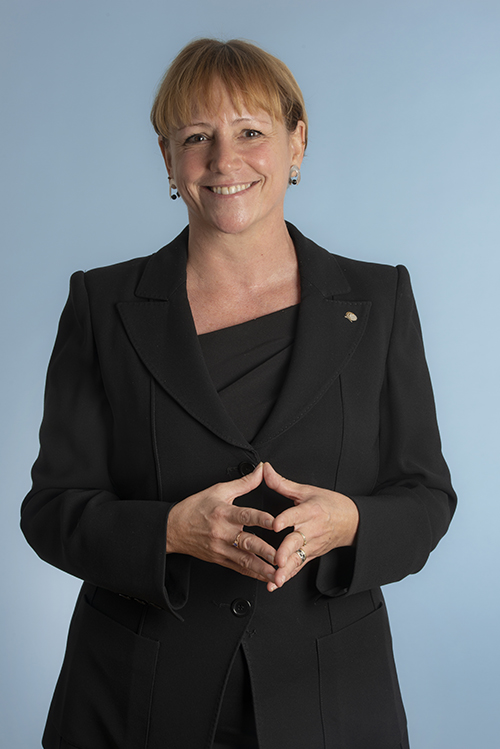
Lucie K. Morisset
*An English translation of this candidate’s statement, provided by ICOMOS Canada, can be found below.*
Lucie K. Morisset est titulaire de la Chaire de recherche du Canada en patrimoine urbain, professeure au Département d’études urbaines et touristiques de l’École des sciences de la gestion de l’Université du Québec à Montréal et chercheure au Centre Cultures Arts Sociétés (CÉLAT).
Elle est aussi membre du Board de TICCIH, The International Committee for the Conservation of Industrial Heritage et du Conseil d’administration de l’AQPI, l’Association québécoise pour le patrimoine industriel. Elle a présidé l’Association of Critical Heritage Studies de 2017 à 2020.
Historienne de l’architecture par formation et indisciplinée par nature, spécialisée dans l’étude de la ville et de ses représentations et dans le développement stratégique des territoires, elle s’intéresse à la formation et au sens du paysage construit. Elle se penche aussi sur les rapports entre l’identité et la culture, dans le tourisme et les pratiques patrimoniales, et sur les transformations des conceptions du patrimoine. Ses travaux les plus récents incluent des explorations théoriques sur les communautés patrimoniales, le patrimoine comme agent de transformation et le droit au patrimoine, dans une perspective de justice sociale, ainsi que des initiatives de recherche action sur le développement local.
Auteure de plusieurs centaines d’articles, d’ouvrages, de rapports et de documents d’orientation, elle intervient régulièrement dans l’enseignement et la recherche au Canada et ailleurs dans le monde. Elle a été élue à la Société royale du Canada en 2011 et a reçu, en 2022, le prix Gérard-Morisset, la plus haute distinction remise par le gouvernement du Québec pour une carrière dédiée au patrimoine.
English Translation:
Lucie K. Morisset holds the Canada Research Chair in Urban Heritage, is a professor in the Department of Urban and Tourism Studies at the School of Management Sciences of the Université du Québec à Montréal and a researcher at the Centre Cultures Arts Sociétés (CÉLAT).
She is also a member of the Board of TICCIH, The International Committee for the Conservation of Industrial Heritage and of the Board of Directors of AQPI, the Quebec Association for Industrial Heritage (l’Association québécoise pour le patrimoine industriel). She served as President of the Association of Critical Heritage Studies from 2017 to 2020.
An architectural historian by training and undisciplined by nature, specializing in the study of the city and its representations and in the strategic development of territories, she is interested in the development and meaning of the built landscape. She is also interested in the relationship between identity and culture, in tourism and heritage practices, and in the transformations of conceptions of heritage. Her most recent work includes theoretical explorations of heritage communities, heritage as an agent of transformation, and the right to heritage from a social justice perspective, as well as action research initiatives on local development.
She is the author of several hundred articles, books, reports and policy papers and is a regular contributor to teaching and research in Canada and internationally. She was elected to the Royal Society of Canada in 2011 and in 2022 received the Gérard-Morisset award, the highest distinction given by the Quebec government for a career dedicated to heritage.
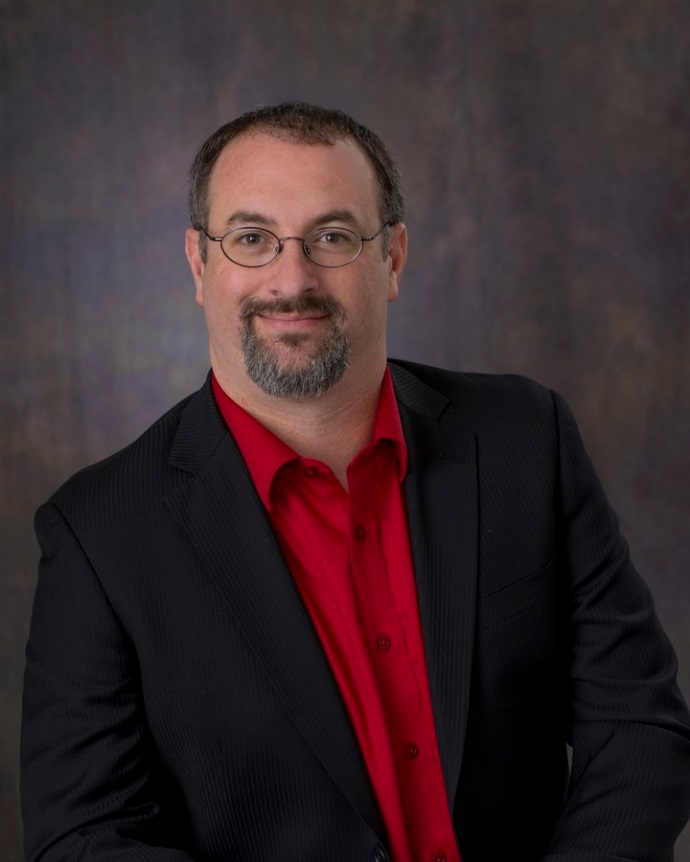
Marcus R. Létourneau
*Une traduction française de la déclaration de ce candidat, fournie par ICOMOS Canada, se trouve ci-dessous.*
Marcus R. Létourneau is the Managing Principal for LHC Heritage Planning & Archaeology Inc., an Ontario-based heritage consultancy with offices in Kingston, Toronto, Ottawa, and Huntsville. He is also an Adjunct Assistant Professor in the Department of Geography and Planning at Queen’s University and an Adjunct Assistant Professor in the School of Planning and Contributing Associate for the Heritage Resources Centre at the University of Waterloo. He co-teaches the facilities management course for the Ontario Museum Association, and teaches a course called “Heritage Planning for Practitioners” at Algonquin College.
Marcus currently serves on the Board of Directors for the Heritage Resources Centre at the University of Waterloo. He is an appointed member of the Board of Directors for the Friends of Springfield House Complex and is part of the program development team for a new Bachelor of Applied Science program in Building Conservation at Algonquin College. He is a professional member of the Canadian Institute of Planners (MCIP), a Registered Professional Planner with OPPI (RPP) and a professional member of the Canadian Association of Heritage Professionals (CAHP). He served as the Vice-Chair for the Township of Leeds and the Thousand Islands Municipal Heritage Committee from 2019-2022.
Marcus was previously the Manager for the Sustainability and Heritage Management Discipline Team (Ottawa/Kingston) and a Senior Cultural Heritage Specialist for Golder Associates Limited (2011-2015). His other positions included: co-teaching heritage planning at the Willowbank School of Restoration Arts; serving as a contract professor at Carleton University in both the Department of Geography and Environmental Studies and School of Canadian Studies (Heritage Conservation); as the senior heritage planner for the City of Kingston (2004-2011) where he worked in both the Planning & Development and Cultural Services Departments; and, in various capacities at Queen’s University at Kingston (2001-2007). He previously served on the Executive and Board of Directors for the Ontario Association of Heritage Professionals; on the Board of Directors for Community Heritage Ontario; on the Board of Directors of the Friends of the Rideau, and, on the Executive and Board of Directors for the Kingston Historical Society.
Marcus has a PhD in Cultural/Historical Geography (Queen’s University); a MA in Cultural Geopolitics (University of Western Ontario); BA (Hons) in Geography with a History Minor (Queen’s University); a Diploma in Peace and Conflict Studies (University of Waterloo); a Professional Certificate in Heritage Conservation Planning (University of Victoria); a Certificate in Museum Studies (Ontario Museum Association); and training in Marine/Foreshore Archaeology. He also completed ICCROM/WHITRAP training in China on impact assessments for heritage. In 2022, he completed ICCROM/Athabasca University training on communication and teaching skills for conservation.
Traduction Française:
Marcus R. Létourneau est le directeur général de LHC Heritage Planning & Archaeology Inc, une compagnie ontarienne d’experts-conseils en patrimoine ayant des bureaux à Kingston, Toronto, Ottawa et Huntsville. Il est également professeur adjoint auxiliaire au département de géographie et d’urbanisme de l’Université Queen’s, professeur adjoint auxiliaire à l’école d’urbanisme et associé collaborateur du Heritage Resources Centre de l’Université de Waterloo. Il co-enseigne le cours de gestion des installations pour l’Association des musées de l’Ontario et donne un cours intitulé ” Heritage Planning for Practitioners ” au Collège Algonquin.
Marcus fait partie du conseil d’administration du Heritage Resources Centre de l’Université de Waterloo. Il est membre nommé du conseil d’administration du Friends of Springfield House Complex et fait partie de l’équipe chargée de l’élaboration d’un nouveau programme de baccalauréat en sciences appliquées en conservation des bâtiments au Collège Algonquin. Il est membre professionnel de l’Institut canadien des urbanistes (MICU), planificateur professionnel inscrit auprès de l’OPPI (RPP) et membre professionnel de l’Association canadienne d’experts-conseils en patrimoine (ACECP). Il a occupé le poste de vice-président du comité municipal du patrimoine pour le Township of Leeds and the Thousand Islands Municipal de 2019 à 2022.
Marcus était auparavant le gestionnaire de l’équipe disciplinaire de la durabilité et de la gestion du patrimoine (Ottawa/Kingston) et un spécialiste principal du patrimoine culturel pour Golder Associates Limited (2011-2015). Il a également été co-enseignant en planification du patrimoine à la Willowbank School of Restoration Arts, professeur contractuel à l’Université Carleton au département de géographie et d’études environnementales et à l’école d’études canadiennes (conservation du patrimoine), planificateur principal du patrimoine pour la ville de Kingston (2004-2011), où il a travaillé dans les départements de la planification et du développement et des services culturels, et a occupé diverses fonctions à l’Université Queen’s de Kingston (2001-2007). Il a déjà été membre du comité exécutif et du conseil d’administration de l’Ontario Association of Heritage Professionals, du conseil d’administration de Community Heritage Ontario, du conseil d’administration des Friends of the Rideau et du comité exécutif et du conseil d’administration de la Société historique de Kingston.
Marcus est titulaire d’un doctorat en géographie culturelle et historique (Université Queen’s), d’une maîtrise en géopolitique culturelle (Université Western Ontario), d’un baccalauréat spécialisé en géographie avec mineure en histoire (Université Queen’s), d’un diplôme en études sur la paix et les conflits (Université de Waterloo), d’un certificat professionnel en planification de la conservation du patrimoine (Université de Victoria), d’un certificat en études muséales (Association des musées de l’Ontario) et d’une formation en archéologie marine et littorale. Il a également suivi une formation ICCROM/WHITRAP en Chine sur les évaluations d’impact pour le patrimoine. En 2022, il a suivi une formation ICCROM/Université d’Athabasca sur les compétences en communication et en enseignement pour la conservation.
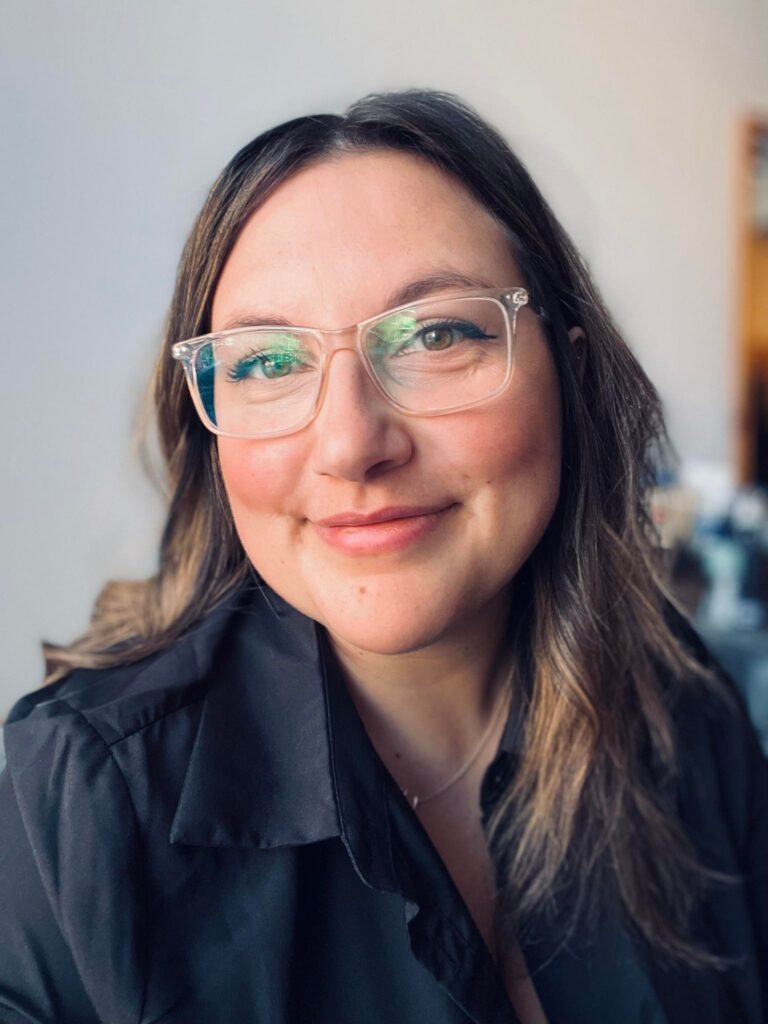
Marie-Josée Vaillancourt
*An English translation of this candidate’s statement, provided by ICOMOS Canada, can be found below.*
Marie-Josée Vaillancourt s’est d’abord spécialisée dans l’analyse des outils de gestion et de planification culturelle, patrimoniale et artistique liées au territoire. Elle a complété un baccalauréat en histoire de l’art et une maîtrise en urbanisme à l’Université de Montréal (Québec) au cours de laquelle elle a réalisé des études sur les politiques culturelles en milieu métropolitain, urbain et régional au Québec, la gestion et planification urbaine de l’insertion des œuvres d’art public montréalaises et a coordonné l’ébauche d’un plan de conservation municipal pour le site patrimonial du Sault-au-Récollet (Montréal). À titre d’analyste en art, culture, patrimoine et territoire pour la firme d’expert-conseil Art Expert, elle a notamment coordonné la réalisation d’un Cadre de référence et de gestion en art public pour la Ville de Brossard. Marie-Josée a également été animatrice lors de consultations sur la planification urbaine à l’Institut du Nouveau Monde (INM), puis conseillère en urbanisme et patrimoine pour la firme EVOQ Architecture. Aujourd’hui Marie-Josée se définit comme une entrepreneure sociale et met à profit son profil pluriel au service de la mission d’Entremise, une startup en urbanisme qui développe des projets immobiliers dans les espaces vacants au bénéfice de la collectivité.
English Translation:
Marie-Josée Vaillancourt first specialized in the analysis of cultural, heritage and artistic management and planning tools related to the land. She completed a bachelor’s degree in art history and a master’s degree in urban planning at the Université de Montréal (Quebec), during which she conducted studies on cultural policies in metropolitan, urban and regional settings in Quebec, the management and urban planning of the insertion of Montreal’s public artworks, and coordinated the drafting of a municipal conservation plan for the Sault-au-Récollet heritage site (Montreal). As an analyst in art, culture, heritage and territory for the consulting firm Art Expert, she coordinated the creation of a reference and management framework for public art for the City of Brossard. Marie-Josée was also a facilitator for urban planning consultations at the Institut du Nouveau Monde (INM), and a consultant in urban planning and heritage for the firm EVOQ Architecture. Today, Marie-Josée defines herself as a social entrepreneur and uses her diverse profile to serve the mission of Entremise, an urban planning startup that develops real estate projects in vacant spaces for the benefit of the community.
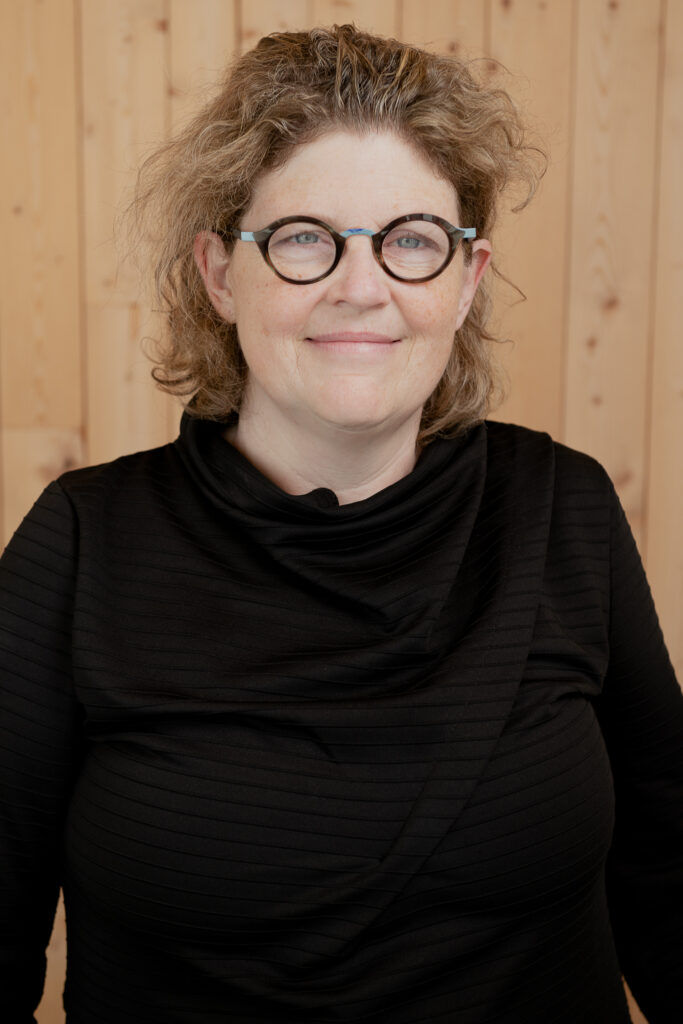
Shannon Bassett
*Une traduction française de la déclaration de ce candidat, fournie par ICOMOS Canada, se trouve ci-dessous.*
Shannon Bassett, MAUD, BARCH, RAIC is a Canadian-American architectural and urban designer. Her research, teaching, writing and practice operate at the intersection(s) of architecture, urban design and landscape ecology. She is an Assistant Professor at the McEwen School of Architecture at Laurentian University in Sudbury, Ontario which has a tri-cultural mandate of English and French (instruction) and Indigenous Learning. She serves on the LU Presidential Advisory Committee for Gender Equity. She was trained as an architect and urban designer at the Harvard Graduate School of Design and the Carleton University School of Architecture.
Her design work and research has been exhibited both nationally, as well as internationally, including at the Hong Kong Shenzhen Bi-City Biennale of Urbanism and Architecture (2012) and was featured in the ensuing book publication, “Learning from Tri-ciprocal Cities: The time, the place, the people”, published by ORO Editions.
Her work has also been displayed at the BUGAIK International Architectural Exhibition (Busan Ulsan Gyeongnam Chapter of Architectural Institute of Korea). She was awarded a National Endowment for the Arts grant for (Re)Stitch Tampa. Ensuing from this research platform was the publication, “(Re)Stitch Tampa: Designing the Post-War Coastal American City through Ecologies”, published by ACTAR.
She has practiced architecture at award-winning firms in both Boston and Ottawa and with the National Capital Commission in Ottawa as a Junior Architect for the Official Residences Section and as a Junior Urban Planner for the Long-Range Planning Division. Currently, she serves as an Advisor to the City of Ottawa Planning Advisory Committee where she was appointed by the Mayor of Ottawa.
Shannon has lectured internationally, including in China, India, South Korea, and the US. She has run design research studios in China, collaborating with the Tongji College of Architecture and Urban Planning, the Tianjin School of Architecture, and the Turenscape College of Architecture and Landscape Architecture, Peking University. She served as an elected two-term board member of the International Association of China Planning (IACP) from 2011 to 2015. She is an Invited Professor every summer to Busan, South Korea, International Architectural Design Workshop (BIAD) CAMPUS – Asia Program, Department of Architecture, Pusan National University, which is funded by the Korean Government as a Korea UNESCP ESD (Education for Sustainable Development) Official Project assigned by the Korean National Commission of UNESCO. She is a member of Docomomo Québec and International.
She is currently collaborating with the Delhi School of Planning and Architecture (SPA) on the conservation and urban redevelopment of the old walled city of Shahjahnahbad through Ecological Urbanism strategies. She is collaborating with the Chair of ICOMOS India North Zone.
She served as an Invited Critic to the Bhopal SPA for a landscape studio focussed on the preservation of Sacred Groves in India as protected cultural landscapes.
While at the Harvard Graduate School of Design, she worked as a Research Assistant for Dr. Serageldin at the Centre for Urban Development Studies (CUDS) and then Institute for International Urban Development. This included researching for a chapter on municipal financing in “Financing Urban Shelter: Global Report on Human Settlements 2005 for the United Nations Human Settlements Programme”.
She is fully bilingual – English and French – (Ontario Secondary School French Immersion Diploma – Glebe Collegiate Institute, Ottawa, ON), and speaks rudimentary Mandarin.
Traduction Française:
Shannon Bassett, MAUD, BARCH, RAIC est une architecte et conceptrice urbaine canado-américaine. Ses recherches, son enseignement, ses écrits et sa pratique se situent à l’intersection de l’architecture, du design urbain et de l’écologie du paysage. Elle est professeure adjointe à l’École d’architecture McEwen de l’Université Laurentienne à Sudbury, en Ontario, qui a un mandat triculturel d’enseignement en anglais et en français et d’apprentissage autochtone. Elle fait partie du comité consultatif présidentiel de l’Université Laurentienne pour l’égalité des sexes. Elle a reçu une formation d’architecte et de designer urbain de la Harvard Graduate School of Design et de la Carleton University School of Architecture.
Ses travaux de conception et de recherche ont été exposés à l’échelle nationale et internationale, notamment à la Biennale d’urbanisme et d’architecture de Hong Kong et de Shenzhen (2012), et ont fait l’objet d’un livre intitulé “Learning from Tri-ciprocal Cities” : The time, the place, the people”, publié par ORO Editions.
Son travail a également été présenté à l’exposition internationale d’architecture BUGAIK (chapitre de Busan Ulsan Gyeongnam de l’Institut d’architecture de Corée). Elle a reçu une bourse du National Endowment for the Arts pour (Re)Stitch Tampa. Cette plate-forme de recherche a donné lieu à la publication de “(Re)Stitch Tampa : Designing the Post-War Coastal American City through Ecologies”, publié par ACTAR. Elle a pratiqué l’architecture dans des entreprises primées à Boston et à Ottawa, ainsi qu’à la Commission de la capitale nationale à Ottawa en tant qu’architecte junior pour la section des résidences officielles et en tant qu’urbaniste junior pour la division de la planification à long terme. Actuellement, elle est conseillère auprès du Comité consultatif d’urbanisme de la Ville d’Ottawa, où elle a été nommée par le maire d’Ottawa.
Shannon a donné des conférences à l’échelle internationale, notamment en Chine, en Inde, en Corée du Sud et aux États-Unis. Elle a dirigé des studios de recherche en Chine, en collaboration avec le Tongji College of Architecture and Urban Planning, la Tianjin School of Architecture et le Turenscape College of Architecture and Landscape Architecture de l’université de Pékin. Elle a été élue pour deux mandats au conseil d’administration de l’Association internationale de planification de la Chine (IACP) de 2011 à 2015. Elle est professeur invitée chaque été à Busan, en Corée du Sud, dans le cadre du programme CAMPUS – Asia de l’International Architectural Design Workshop (BIAD), au département d’architecture de l’université nationale de Pusan, qui est financé par le gouvernement coréen en tant que projet officiel de l’UNESCP ESD (éducation au développement durable) attribué par la commission nationale coréenne de l’UNESCO. Elle est membre de Docomomo Québec et International.
Elle collabore actuellement avec l’école de planification et d’architecture de Delhi (SPA) à la conservation et au réaménagement urbain de l’ancienne ville fortifiée de Shahjahnahbad par le biais de stratégies d’urbanisme écologique. Elle a été critique invitée à la SPA de Bhopal pour un atelier de paysage axé sur la préservation des bois sacrés en Inde en tant que paysages culturels protégés.
Elle collabore actuellement avec l’école de planification et d’architecture de Delhi (SPA) sur la conservation et le réaménagement urbain de l’ancienne ville fortifiée de Shahjahnahbad par le biais de stratégies d’urbanisme écologique. Elle collabore avec le président de la zone nord d’ICOMOS Inde.
Elle a été critique invitée à la SPA de Bhopal pour un studio de paysage axé sur la préservation des bosquets sacrés en Inde en tant que paysages culturels protégés.
Pendant ses études à la Harvard Graduate School of Design, elle a travaillé comme assistante de recherche pour le Dr Serageldin au Centre for Urban Development Studies (CUDS), puis à l’Institute for International Urban Development. Elle a notamment effectué des recherches pour un chapitre sur le financement municipal dans “Financing Urban Shelter : Global Report on Human Settlements 2005 for the United Nations Human Settlements Programme”.
Elle est parfaitement bilingue – anglais et français – (diplôme d’immersion française de l’école secondaire de l’Ontario – Glebe Collegiate Institute, Ottawa, ON), et parle un mandarin rudimentaire.
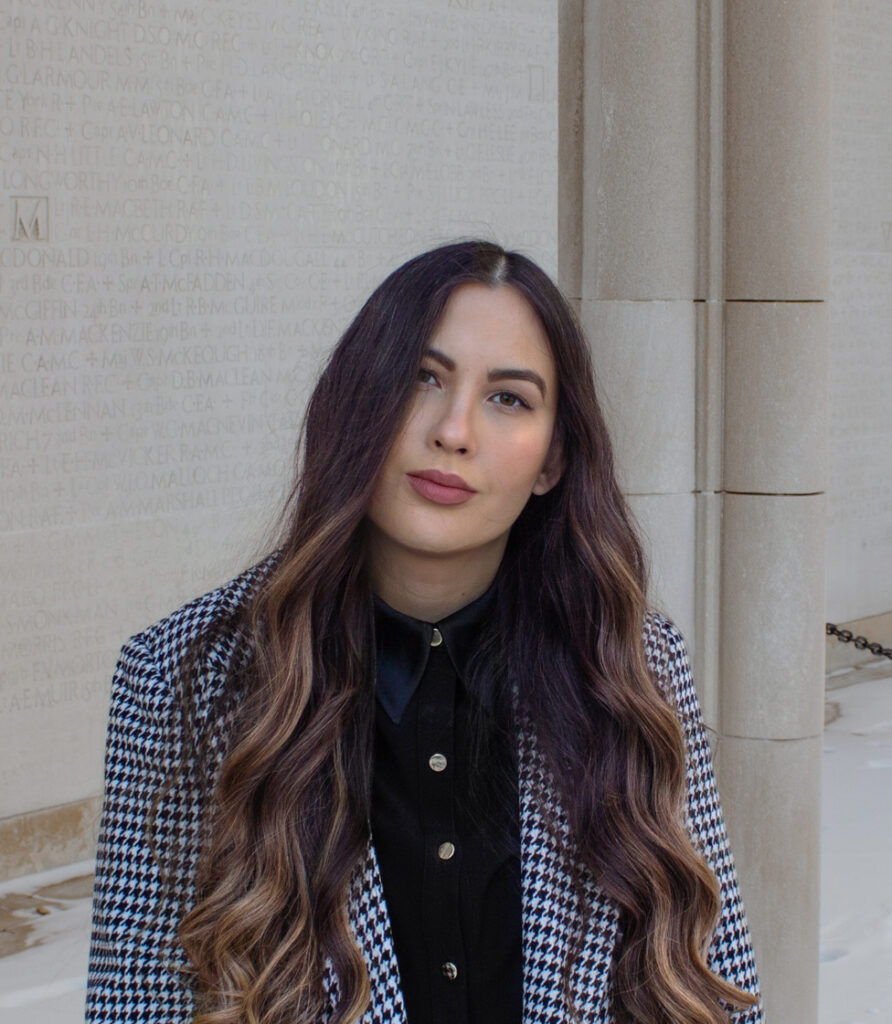
Stephanie Mah
*Une traduction française de la déclaration de ce candidat, fournie par ICOMOS Canada, se trouve ci-dessous.*
Stephanie Mah, CAHP, is a city-builder, conservationist, and designer who specializes in integrating design excellence, cultural heritage, and sustainability in the built environment. She is the Creative Director at Giaimo, a Toronto-based architecture and conservation firm founded in 2015. Over the last seven years, she has also been involved in the non-profit charitable organization Architectural Conservancy of Ontario (ACO) and currently serves as the President of ACO’s Toronto Branch. She is a member of the Canadian Association of Heritage Professionals (CAHP) and sits on the Society for the Study of Architecture in Canada (SSAC)’s Diversity, Equity, Inclusivity, and Sustainability Committee. She recently led The Oculus Revitalization, which received wide-spread recognition including a 2022 Heritage Toronto Built Heritage Award and a 2021 Lieutenant Governor’s Ontario Heritage Award for Excellence in Conservation.
Stephanie has a Bachelor of Arts Honours from Carleton University (Ottawa) in History and Theory of Architecture, as well as a Certificate in Digital Media from OCAD University (Toronto). Her multi-disciplinary background allows her to provide unique insights in architecture, conservation, and urbanism through research, writing, communications and business development, creative strategy, design thinking, community engagement, programming, and placemaking. Her projects have been published in Canadian Architect, Toronto Star, and the Globe and Mail, and she has been an invited guest crit and presenter at Toronto Metropolitan University, University of Toronto, Carleton University, and Willowbank School of Restoration Arts. In 2022, she led a speaker series called “Heritage for Whom? Conserving Community Spaces” at multiple conferences including the SSAC (Montreal), Ontario Heritage Conservation (Brockville), and National Trust for Canada (Toronto).
Traduction Française:
Stephanie Mah, ACECP, est une bâtisseuse de villes, une conservatrice et une conceptrice qui se spécialise dans l’intégration de l’excellence en matière de design, du patrimoine culturel et de la durabilité dans l’environnement bâti. Elle est directrice de la création chez Giaimo, un cabinet d’architecture et de conservation basé à Toronto et fondé en 2015. Au cours des sept dernières années, elle s’est également engagée dans l’organisation caritative à but non lucratif Architectural Conservancy of Ontario (ACO) et occupe actuellement le poste de présidente de la branche torontoise de l’ACO. Elle est membre de l’Association canadienne d’experts-conseils en patrimoine (ACECP) et siège au comité sur la diversité, l’équité, l’inclusion et la durabilité de la Société pour l’étude de l’architecture au Canada (SÉAC). Elle a récemment dirigé le projet de revitalisation de l’Oculus, qui a reçu de nombreuses distinctions, dont un prix du patrimoine bâti de Heritage Toronto en 2022 et un prix du patrimoine ontarien du lieutenant-gouverneur en 2021 pour l’excellence en conservation.
Stephanie est titulaire d’un baccalauréat en arts avec spécialisation en histoire et théorie de l’architecture de l’Université Carleton (Ottawa), ainsi que d’un certificat en médias numériques de l’Université OCAD (Toronto). Son expérience multidisciplinaire lui permet d’apporter un éclairage unique sur l’architecture, la conservation et l’urbanisme par le biais de la recherche, de la rédaction, des communications et du développement des affaires, de la stratégie créative, de la réflexion sur le design, de l’engagement communautaire, de la programmation et de la création de lieux. Ses projets ont été publiés dans Canadian Architect, Toronto Star et le Globe and Mail, et elle a été invitée à présenter des exposés à l’Université métropolitaine de Toronto, à l’Université de Toronto, à l’Université Carleton et à la Willowbank School of Restoration Arts. En 2022, elle a dirigé une série de conférences intitulée “Heritage for Whom ? Conserving Community Spaces ” dans le cadre de plusieurs conférences, notamment celles du SSAC (Montréal), de la Conservation du patrimoine de l’Ontario (Brockville) et du National Trust for Canada (Toronto).

Vaibhavi Dhote
*Une traduction française de la déclaration de ce candidat, fournie par ICOMOS Canada, se trouve ci-dessous.*
Vaibhavi Dhote is a specialist in built heritage conservation and has been a part of award winning conservation projects and the dossier preparation of an inscribed World Heritage Site. She holds a masters’ degree in Architecture from the School of Planning and Architecture, Bhopal. She is passionate about participation of the emerging professionals and youth in heritage and activities, and has previously been an EP representative at the Steering Committee of ICOMOS India. Currently, she is a mentee at the Capital Heritage Connexion Mentorship Program for Heritage in Ottawa, where she is putting together a roadmap to assist newcomers and emerging professions in building a career for themselves.
Traduction Française:
Vaibhavi Dhote est une spécialiste de la conservation du patrimoine bâti. Elle a participé à des projets de conservation primés et à la préparation du dossier d’un site inscrit au patrimoine mondial. Elle est titulaire d’une maîtrise en architecture de l’école de planification et d’architecture de Bhopal. Elle se passionne pour la participation des professionnels émergents et des jeunes au patrimoine et aux activités, et a déjà été représentante du PE au comité directeur de l’ICOMOS Inde. Actuellement, elle est mentor dans le cadre du programme de mentorat de Capital Heritage Connexion pour le patrimoine à Ottawa, où elle élabore un document pour aider les nouveaux arrivants et les professions émergentes à se construire une carrière.

